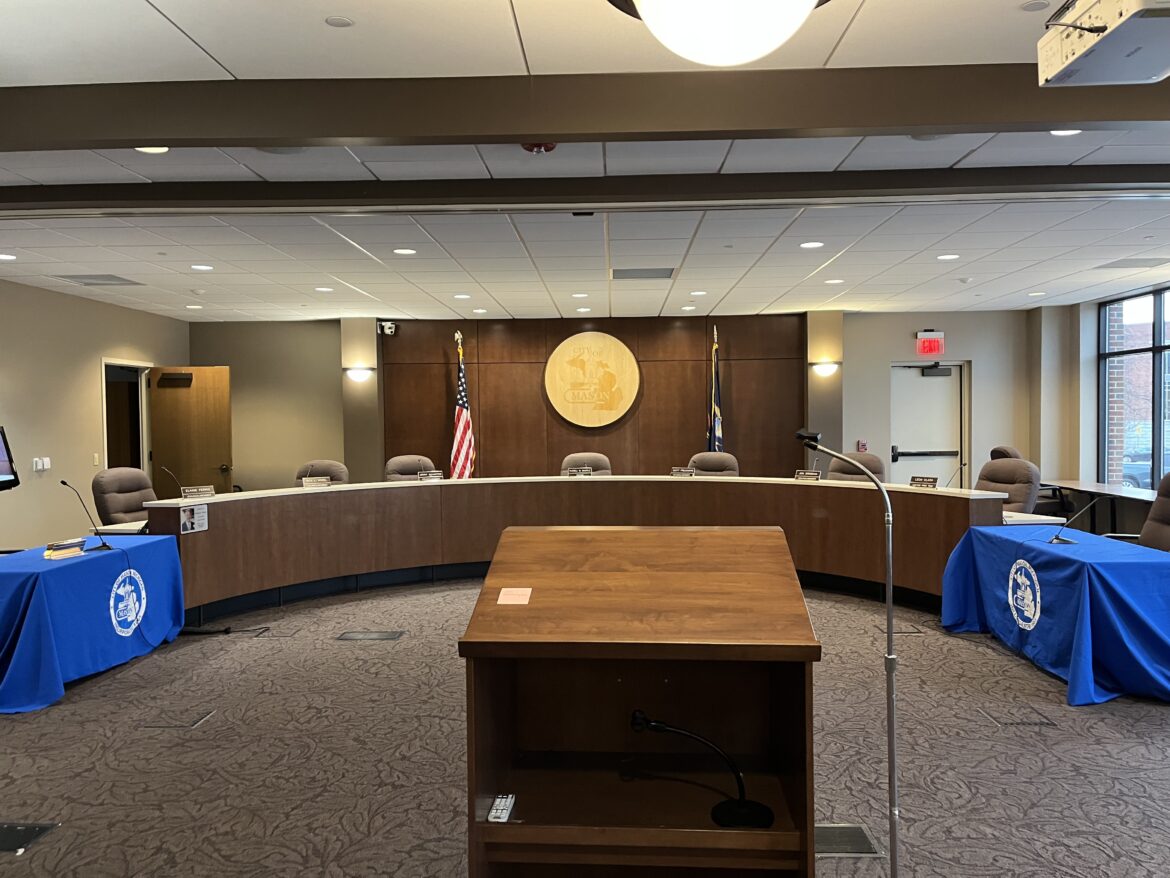Mason City officials discussed whether a school resource officer should be placed in public schools in the District at its March 20 meeting.
The meeting opened with one public comment in regard to the motion passed forth in regard to the installation of a resource officer into Mason Public Schools. The community member approached the stand and discussed their experience with an in-school officer. The experience featured a positive experience with one officer who she found beneficial and a negative experience.
Following public comment, council member Rita L. Vogel introduced research on the data on resource officers but said she had not received much information on the specifics in the hiring of said officer.
While mayor Russel Whipple recalled a discussion the council “had a rather long discussion” back in November. The council member responded by saying “We did not,” Vogel said.
“We talked about we’re doing this, I emailed twice trying to get answers so I could have fact-based data to back up my decision and I was told we had to wait until the grant was awarded. The minute that grant was awarded I emailed city manager Stewart saying ‘could I now have that data so that I could present my colleagues with information that maybe they’re unaware of?’ and I was told to “wait until this meeting,” Vogel said.
Vogel was curious what assessment rubric they would use, citing a “difference between a school resource officer, armed guard, and a guard.”
Then while looking at Superintendent Gary Kinzer she said “I was looking forward to what our school needs are.” Following this Vogel had questions regarding the transportation of the officer and the hours the officer.
Whipple responded, saying “We have the agreement in our packet which actually comments on everything you just said so far.”
On page 104, section two, the packet describing the agreement says: “The SRO shall be scheduled to work forty (40) hours per week during the traditional school year, approximately September 1 to June 15 on the SRO assignment during the school year, and will revert to ordinary police assignment when school is not in session.”
Vogel countered saying “I think my questions are deeper, it’s like which roles for various parties, you have various parties, you have SRO, teacher, and school administrator. If there’s a crisis situation does the change of command change?”
Vogel insisted on needing more fact-based data to support funding the position. She also made it clear she would love to support the bill but needed more information. While deliberations continued it was clarified the school would set the parameters for how the SRO be utilized and his chain of command. Whipple also said the city manager would be responsible for picking the SRO. After the deliberations it was decided in a six-to-one vote there would be an SRO installed in the school system.
Following the SRO discussion, the committee made a decision to approve the budget of $1,091,255 for the contract with Moore Trosper Construction Company for the library renovations. After the motion was seconded council member Jerry Schaffer drew concern with the amount not being enough. Schaffer said, “after reading the breakdown of the spending I don’t think it’ll be done by that and the contingency fund is 10 percent, that’s awfully lean.” The council member had concerns that the renovation would be something they pour money into for a number of years. Despite the concern, the council approved the motion 7-0.
Later in the meeting, Schaffer moved to switch the years of the renovations between Hayes and Bond Park. His rationale being he wanted the pickleball courts he uses at Hayes Park to be renovated and there is a possible sale of land at Hayes Park. By doing this he believed he bought the committee more time. They would go on to pass at a 7-0 vote.
The last agenda item was to remove funds for a sidewalk improvement project as BAD Brewing and Keenes had become responsible for the funds in the alley. Throughout the year they were supposed to have agreed and made those renovations which confused the mayor’s temp. “Clark. I was curious as to why we are removing $32,549.10 Related to Kean Co. Bad Brewing as it was supposed to be taken care of a year ago” said Clark.
City manager Deborah Stuart went on to explain that they had tried to reach an agreement with the two local businesses and hadn’t succeeded yet. When the project was proposed they had some concerns about the cost however the city provided a three-year payment plan with interest. BAD Brewing and Kean’s declined the city’s offer.
“Part of their approval that’s enabled them to do business for what’s it going on the last two years now was this agreement,” Clark said, visibly upset “That’s what they agreed to and now they’re going to welsh on the agreement. I don’t think we should give them any option, they either do it the way that it’s spelled out here or they can quit doing business.”
Stuart explained for them to make changes they needed to go to the City Planning Commission. In doing so Whipple expressed he didn’t want the commission to make any changes to the current plan. The committee did not approve the withdrawal of funds.
